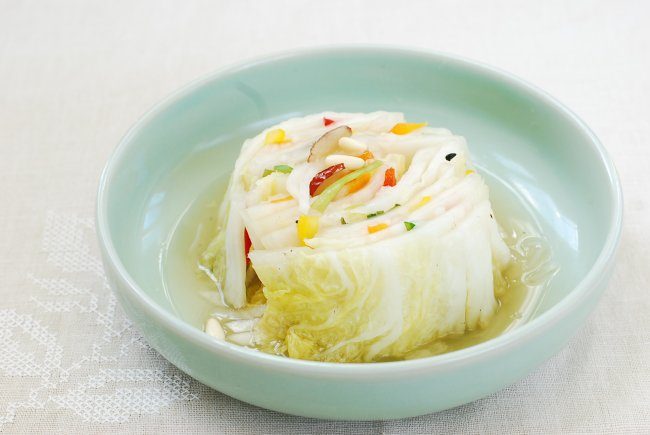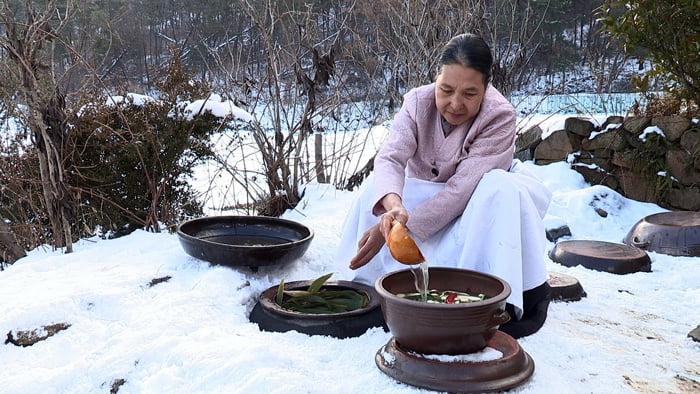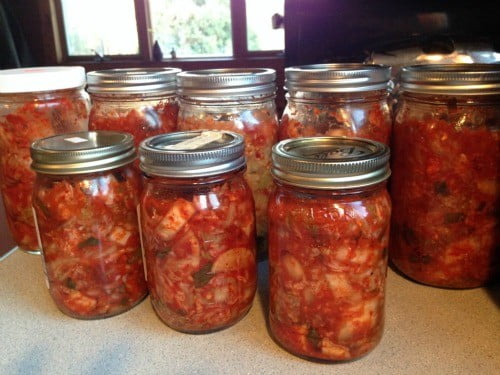Kimchi is a great dish. Though not all people may agree with the taste. But most people who like spicy food and veggie are in for a treat! Kimchi is a staple food in Korea. Kimchi making, according to history, dates back to the 3rd century! Imagine how well they have preserved this traditional recipe!
They have been making kimchi for the thousands of years, so they have become experts on this stuff! Many variations and adaptations have been made but the most popular, still, is the Nappa cabbage kimchi.
Other vegetables can be preserved too!To deepen your knowledge about kimchi, let’s try to answer some questions in your mind. Is kimchi tasty? Are there health benefits in consuming kimchi? How long does kimchi last? How do I store kimchi? What do I do with old kimchi? What’s good to eat with kimchi?
Is Kimchi Tasty?
Well, this depends on what type of foods you are used to. If you love Asian delicacies, you might fall in love with kimchi! If you are fond of eating spicy food, you will enjoy kimchi! It’s a perfect side dish for, well, almost anything!

If you had a taste of kimchi and you liked it, except for its spicy flavor, there is one version just for you! They call it Baek kimchi (literally white kimchi). This is made with the same ingredients as your regular kimchi; they just skipped the chili flakes.
Now if you didn’t like it the first time, try asking for Baek kimchi instead. Maybe this time, you will fall in love with this delicious dish!
Are There Health Benefits in Consuming Kimchi?
According to this site, an average Korean consumes about 22 kg of kimchi per year, that is 60 grams of kimchi per day on average. Some days they will eat more, some days they will eat less. Others exceed this computation! What about you? How much kimchi do you eat per year?No wonder many Koreans have a healthy glow! Kimchi is packed with vitamins and minerals that can boost your immune system!
- Rich in vitamins and minerals.
Kimchi is a good source of B-vitamins and vitamin C. It is also a rich source of vitamin A, vitamin K, and folate. Kimchi can also give you good amounts of iron and manganese. This can help you combat anemia! No wonder Koreans have this pinkish glow!
- Good source of antioxidants.
Remember when scientist discovered that free radicals are responsible for a premature aging low immune response? Well, they also found out that anti-oxidants can help us get rid of free radicals. And you know what? Kimchi is a good source of it!
- Low-calorie content.
Korea is one of the countries with the lowest obesity rate. Maybe one of the reasons why is because their staple food is low in calorie and is packed with vitamins and minerals!
How Long Does Kimchi Last?
When properly stored at an optimal temperature and hygienically prepared, kimchi can last for years! Yes, they can last that long given the right environment. You may think that a few months will turn kimchi into rot. But, I’m sorry, they can last pretty long.

Now depending on how you like your kimchi, you can increase or decrease the rate it ferments. Some people like it was fresh and crunchy. Some others prefer sour and well-melded flavors. There are also people who enjoy old sour kimchi.
When stored at higher temperatures, kimchi will ferment faster and will turn sour. When it gets too sour for your palate, you can always use it as a soup base. You see, there is no way that kimchi will go to waste. When it’s already past its prime, you can always make stuff out of it.
How Do I Store Kimchi?
If you have a huge yard, you can go traditional! Koreans traditionally store kimchi in clay jars and bury it to the ground during winter. The warmth of the soil and the saltiness of the kimchi prevents it from getting frozen! But this method may not be practical if you are just making a few pounds, right?

Via korea.net
You can use smaller earthenware jar or any airtight container you can use. You can use glass jars too. After a day or 2 of fermenting your kimchi at room temperature, it will be ripe and smell sour. You can put them in the refrigerator to stop it from fermenting. If you leave it too long at room temperature, they will ferment faster, and you may end up with too sour kimchi.

Do not fill your containers to the brim. As your kimchi ferments, bubbles form and pressure builds up inside the container. If you don’t leave space, your airtight glass jar might break! If you are using airtight plastic containers, you may notice the juice seeping on the surface! So give your kimchi some space to breathe.
What Goes Well With Kimchi?
Since kimchi is a staple food in Korea, they serve it every day with every meal! Well, we may not be used to eating kimchi every day but, kimchi goes well with almost anything!
Kimchi is great with barbecues! It is globally famous with barbecues. And yes, they are a perfect match! It also goes well with soups, in fact, you can make tasty sour soups with kimchi!

Via norecipes.com
It also goes great with some weird but delicious pancake and omelette recipes! Yeah, that’s a nice way to spice up your breakfast!
Other than that, there have been western incorporations of kimchi in some recipes! It can be a good taco and quesadilla filling! You can have it with your burger and fries too! Why not have them over your hot dog sandwich? Try it!
Summary
Kimchi is a delicious side dish you can eat with almost anything. You can make it on your own, or you can buy it at the nearest grocery stores. They are a good source of vitamins and minerals! They are low in calories, so feel free to consume tons of it!
Buy or make large batches and store them properly. But how long does kimchi last? Hygienically storing them is the key to making it last long so that you can have it in the fridge anytime you want it!
Like this post? Feel free to share this page with your kimchi lover friends! Leave a comment below if you have some questions and I will try to answer them as soon as I can!